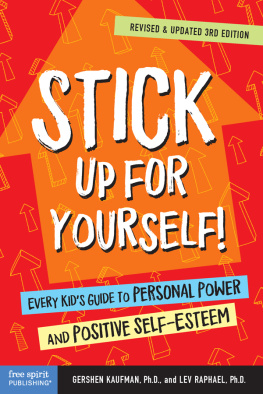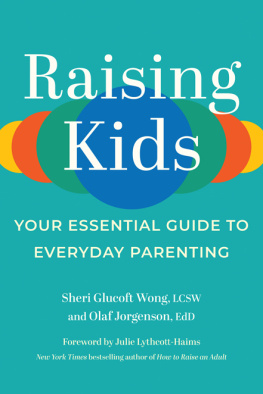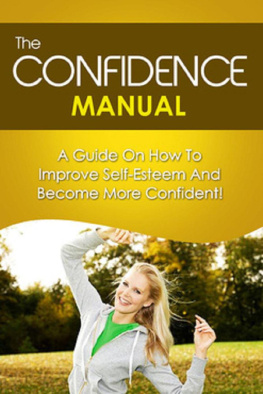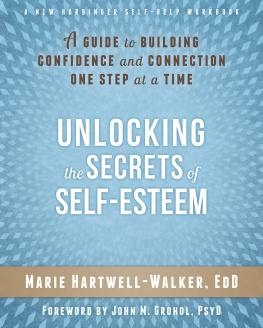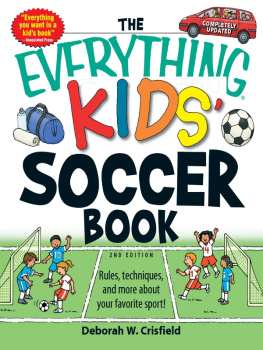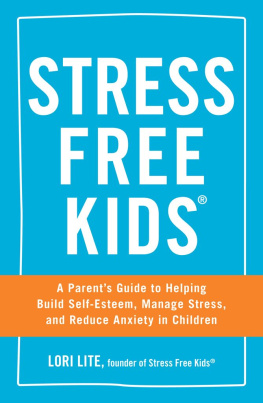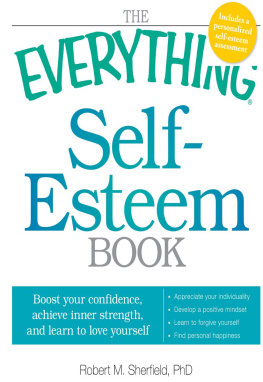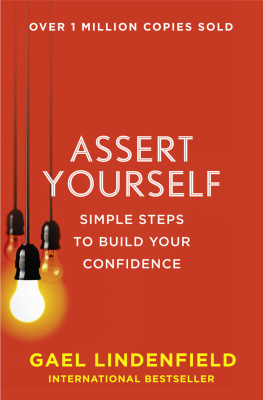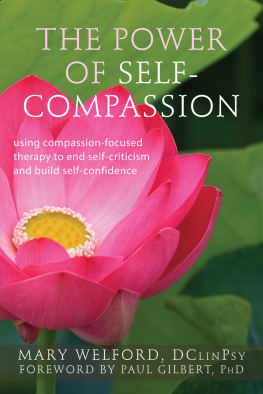
Text copyright 2019 by Gershen Kaufman, Ph.D., and Lev Raphael, Ph.D.
Illustrations copyright 2019 by Free Spirit Publishing Inc.
All rights reserved under International and Pan-American Copyright Conventions. Unless otherwise noted, no part of this book may be reproduced, stored in a retrieval system, or transmitted in any form or by any means, electronic, mechanical, photocopying, recording, or otherwise, without express written permission of the publisher, except for brief quotations or critical reviews. For more information, go to www.freespirit.com/permissions.
Free Spirit, Free Spirit Publishing, and associated logos are trademarks and/or registered trademarks of Free Spirit Publishing Inc. A complete listing of our logos and trademarks is available at www.freespirit.com.
Library of Congress Cataloging-in-Publication Data
Names: Kaufman, Gershen, author. | Raphael, Lev, author.
Title: Stick up for yourself! : every kids guide to personal power and positive self-esteem / Gershen Kaufman, Ph.D., and Lev Raphael, Ph.D.
Description: Revised & updated third edition. | Minneapolis, MN : Free Spirit Publishing, [2019] | Includes index.
Identifiers: LCCN 2018040755 (print) | LCCN 2018042014 (ebook) | ISBN 9781631983238 (Web PDF) | ISBN 9781631983245 (ePub) | ISBN 9781631983221 (pbk.) | ISBN 1631983229 (pbk.)
Subjects: LCSH: Assertiveness (Psychology)Juvenile literature. | Control (Psychology)Juvenile literature. | Self-esteemJuvenile literature.
Classification: LCC BF575.A85 (ebook) | LCC BF575.A85 K38 2019 (print) | DDC 158.2dc23
LC record available at https://lccn.loc.gov/2018040755
Free Spirit Publishing does not have control over or assume responsibility for author or third-party websites and their content.
Reading Level Grade 5; Interest Level Ages 913;
Fountas & Pinnell Guided Reading Level T
Edited by Alison Behnke
Cover and interior design by Emily Dyer
Illustrations by Jennifer Naalchigar
Free Spirit Publishing Inc.
6325 Sandburg Road, Suite 100
Minneapolis, MN 55427-3674
(612) 338-2068
www.freespirit.com
Free Spirit offers competitive pricing.
Contact for pricing information on multiple quantity purchases.
DEDICATION
To Kinsley and Caden,
and Eliana, Ruby, and Franklin
ACKNOWLEDGMENTS
We would like to thank the W.K. Kellogg Foundation and the Health Promotion Program at Michigan State University for providing the funding that enabled us to develop the curriculum on which this book is based. We would also like to thank the Psychology Department at Michigan State University for their support, and Dr. Silvan Tomkins, who pioneered the study of human emotions. And thanks to our publisher, Judy Galbraith, for conceiving the idea of translating our concepts specifically for children.

CONTENTS
A NOTE TO PARENTS, TEACHERS, AND OTHER ADULTS

Hey, kids! Be sure to give your parents and teachers the inside scoop about whats in this book!
Positive self-esteem is the single most important psychological skill we can develop in order to thrive in society. Having self-esteem means being proud of ourselves and experiencing that pride from within. Without self-esteem, kids doubt themselves, cave in to peer pressure, feel worthless or inferior, and may turn to drugs or alcohol as a crutch. With self-esteem, kids feel secure inside themselves, are more willing to take positive risks, are more likely to take responsibility for their actions, can cope with lifes changes and challenges, and are resilient in the face of rejection, disappointment, failure, and defeat.
Self-esteem is not conceit, its not arrogance, and its not superiority!
Unfortunately, its often confused with all three (and also with narcissism, egotism, and disrespect), which leads some people to believe that too much self-esteem is bad for kids. In fact, nothing could be further from the truth. Indiscriminate praise, flattery, social promotion, and falsely inflated self-worth are indeed bad for kids, but those arent what self-esteem is really about. Self-esteem is based on facts and truths, achievements and competencies. The more self-esteem kids have, and the stronger it is, the better equipped they are to make their way in the world.
Conceit, arrogance, and superiority do exist, of course. But they arent the result of genuine pride. Instead, theyre the result of contempt for others. Pride grows out of enjoying ourselves, our accomplishments, our skills, and our abilities. Its not about diminishing anyone else.
Contempt, on the other hand, often masquerades as pride, but its really false pride if you look closely. When were contemptuous of others, we perceive them as being beneath us. We see ourselves as superior. Secretly, however, were actually feeling inferior to others. Contempt allows us to temporarily rise above those feelings of inferiority. But in order to keep feeling this way, we have to continually find someone else to feel superior tosomeone else we can put down in order to stay on top.
We believe that contempt is a root cause of two great problems facing our schoolsand our worldtoday: bullying and violence. Kids who taunt, tease, and harass others arent kids with positive self-esteem and genuine pride in themselves. They are kids who lack social skills and empathy, and may have other serious problems, including parents or older siblings who bully them, deep-seated anger, loneliness, jealousy, or resentment of another persons success. In order to bully others, you must believe that their feelings, wants, and needs dont matter. You must feel contempt for them.
When contempt combines with feelings of powerlessness and shame, these emotions can escalate into violence. Weve seen this in the school shootings that shock us so profoundly year after year. The children and teens who wound and kill their classmates and teachers arent kids with positive self-esteem and genuine pride in themselves. For reasons we may never fully understand, these kids developed utter contempt for others, coupled with a burning rage. It wasnt only that other peoples feelings, wants, and needs didnt matter. Their lives didnt matter.
Self-esteem isnt the culprit here. Rather, the lack of positive self-esteem may lead some kids to take inappropriate, hurtful, and even violent or desperate actions. When we help kids build positive self-esteem, were not teaching them to diminish anyone else, and were certainly not teaching them to be contemptuous. Instead, were teaching them to take pride in themselves; to feel good about themselves when they do the right thing and own responsibility when they dont; to celebrate their achievements (both tangible and intangible); to know what they stand for and what they wont stand for; and to strive to be their best inside and out. When kids have a solid grasp of their feelings and needs, trust their emotions and perceptions, have a realistic sense of their capabilities, and have personal power, then they feel secure and confident inside themselves and feel no need to put other people down.
Self-esteem isnt something were born with. Its something we learn, which means it can be taught. We believe that all children should be taught the skills of personal power and positive self-esteem at home and in the classroom right along with reading, writing, and arithmetic. All of these basics work together.

